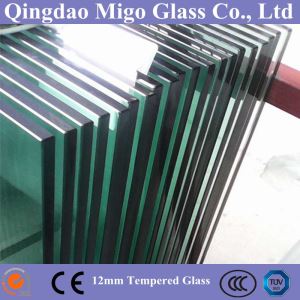What Is Mirror Coating?
Glass mirrors are commonly found in bathrooms due to their reflective properties. Mirrors reflect light in such a way that they reverse the image and allow viewers to see themselves, objects behind them, or even objects at different angles that are outside their direct line of sight, such as around corners. This unique property of mirrors enables individuals to have a broader perspective and observe things that would otherwise be out of their field of view.
Mirror coating is a process by which a layer is deposited onto the surface of glass to enhance its reflective properties. This coating is what gives mirrors their ability to reflect light and produce clear images. The mirror coating can improve the mirror's reflective qualities, especially for specific colors or wavelengths of light.
When the coating is applied to the glass surface, it creates a reflective surface that allows light to bounce off and create a reflection. The thickness and composition of the coating can affect the mirror's reflectivity and the specific colors that are reflected. Mirror coatings are designed to maximize reflection and minimize light absorption, resulting in a highly reflective surface.
Mirrors with a proper mirror coating are widely used in decoration, as well as in various industries where reflective surfaces are needed. The coating enhances the mirror's ability to reflect light and provides a clear and accurate reflection. This makes mirrors an essential component in many applications, from home decor to scientific instruments.
The primary component of mirror coatings is metal plating, which involves depositing metals such as gold, platinum, silver, and copper onto the surface of the glass. However, this does not imply that one can simply weigh a mirror and sell it based on the value of the metal it contains. Differnt types of mirror may have differenty layers of coating, all of the basic is the mirror grade float glass. However, some of the customers may see the scratches and bubbles, the one of reasons may come from the raw material of the float glass, which may not be mirror grade, this is one of part of the cheap mirror comes from.
2 Why Is Mirror Coated?
Mirror is glass sheet coated with silver. The coating is what makes the mirror a mirror. If there's no coating, light would pass through the "mirror" because it would be transparent. The silver coating is opaque and therefore reflects light very brilliantly and is responsible for forming images.
The coating helps to protect the reflective surface of the mirror from corrosion and degradation. This is especially important in environments where the mirror is exposed to moisture, chemicals, or other corrosive substances. The coating acts as a barrier, preventing these substances from reaching the reflective surface and causing damage.
Enhance the reflective properties of the mirror. By applying a specialized coating, the mirror can achieve a higher level of reflectivity, resulting in clearer and more accurate reflections. This is particularly important in applications where precise reflection is required, such as in optical instruments or scientific equipment.
Improve the durability of the mirror. By providing a protective layer, the coating helps to extend the lifespan of the mirror, reducing the need for frequent replacement and maintenance. This is particularly beneficial in commercial and industrial settings where mirrors are subjected to heavy use and wear. Better coating you will not see the black spots for over years.






